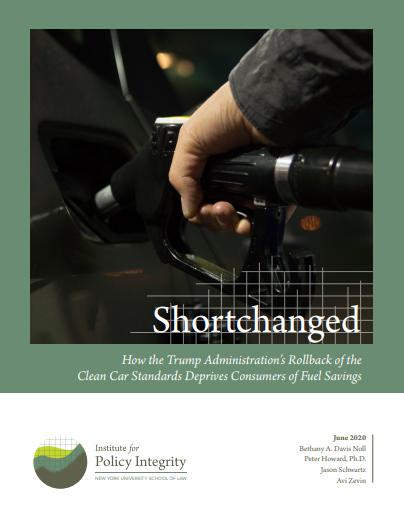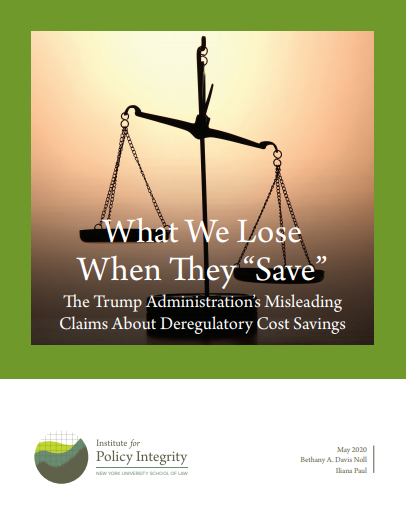-
Comments to Oregon PUC on the Social Cost of Carbon
Oregon Governor Kate Brown signed an executive order directing state agencies, including the Public Utilities Commission (PUC), to reduce greenhouse gas emissions. We submitted comments encouraging the PUC to use Social Cost of Carbon metrics to monetize the benefits of avoided greenhouse gas emissions.
-
Comments to BLM on Royal Gorge Oil and Gas Lease Sale
The Bureau of Land Management (BLM) released its environmental assessment of a September 2020 lease sale in the Royal Gorge Field Office region of Colorado. We submitted comments asking BLM to monetize the real-world climate impacts of projected emissions using the social cost of greenhouse gases.
-
Comments to DOE on Energy Conservation Standards for Air Conditioning and Heating Equipment
The Department of Energy requested input on impact and emissions analysis for upcoming energy conservation standards. We submitted comments encouraging DOE to continue to monetize the full climate benefits of greenhouse gas emissions reductions.
-
Comments to DOE on Energy Conservation Standards for Water Source Heat Pumps
The Department of Energy requested input on impact and emissions analysis for upcoming energy conservation standards. We submitted comments encouraging DOE to continue to monetize the full climate benefits of greenhouse gas emissions reductions.
-
Comments to EPA Science Advisory Board on Economic Analysis Guidelines
The Environmental Protection Agency’s chartered Science Advisory Board (SAB) invited the public to comment on its new draft Guidelines for Preparing Economic Analyses. We submitted multiple sets of comments covering different portions of the guidelines.
-
Comments to Colorado PUC on Valuing Distributed Energy Resources
The Colorado Public Utilities Commission (PUC) is exploring options for valuing distributed energy resources (DERs) in various contexts, including infrastructure planning, performance-based ratemaking, and others. We submitted comments identifying metrics that capture the value of DERs and suggesting how the PUC can employ those metrics to maximize benefits to the grid and society.
-
Shortchanged: How the Trump Administration’s Rollback of the Clean Car Standards Deprives Consumers of Fuel Savings
The Trump administration recently replaced the Obama administration’s strongest climate policy, the Clean Car Standards, with a significantly weaker rule. We explain how EPA and NHTSA, to justify the rollback, rely on an analytical gimmick that contravenes decades of agency practice across administrations as well as the principles of basic economics.
-
Comments to DOE on Energy Conservation Standards for General Service Lamps
The Department of Energy (DOE) requested input on how it should conduct analysis of the efficiency, economic impact, and emissions of general service fluorescent lamps and incandescent reflector lamps. We submitted comments encouraging DOE to monetize the full benefits of emissions reductions using the social cost of greenhouse gases.
-
Comments to Rhode Island on Carbon Pricing Study
Rhode Island is undertaking a study to understand what a state carbon pricing scheme would look like and how it would interact with the state’s participation in the Regional Greenhouse Gas Initiative and the Transportation and Climate Initiative. We submitted comments that support the exploration of implementing a multisectoral carbon price and recommend that the state study a scenario that uses the federal Interagency Working Group’s Social Cost of Carbon.
-
What We Lose When They “Save”
The Administration’s Misleading Claims About Deregulatory Cost Savings
The Trump administration regularly boasts about the cost savings of rolling back regulations, focusing on industry profits without considering significant negative impacts. This policy brief address and counters the administration's cost savings claims and demonstrates that they should not be taken at face value.







